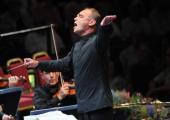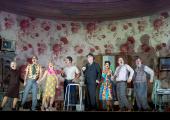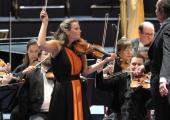Melvyn Bragg on Class and Culture, BBC Two

A series that asks the right questions about culture and occasionally hits upon an unpalatable truth
The Lord count was perhaps surprisingly high in the first instalment of Melvyn Bragg on Class and Culture. Among the talking heads I counted there was only one who wasn’t a life peer or a “proper” hereditary one, and there was only one who was neither Lord, Lady or Dame (though she did have a CBE).









